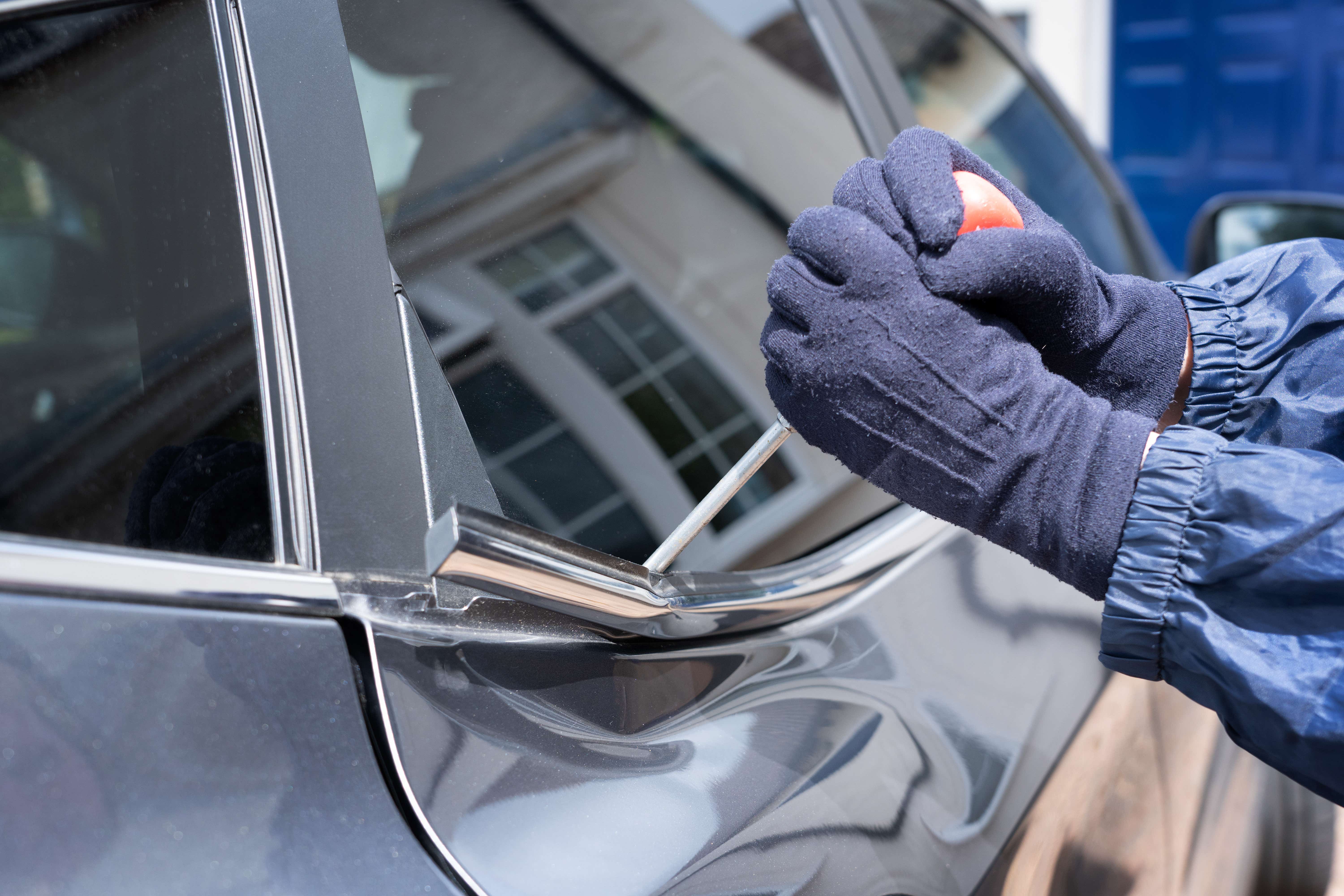1. Consider where you park
Your car will be most secure against thieves if kept in a locked garage or secure car park. But it could be more likely to get bumped or scraped that way, so your insurer may increase your premium slightly to reflect this.
If you park your car on your driveway, consider installing a CCTV camera or motion detector lighting to deter criminals.
If your only option is to park on the street, make sure it’s in a well lit area. But be aware that if you park away from your home — even just around the corner — you must inform your insurer.
2. Remove temptation for opportunistic thieves
Keep valuables out of sight, and ideally don’t leave them in your car at all. Even low value items can tempt thieves — and while these things might not cost a lot to replace, you could end up losing your no claims bonus by making a claim for a forced lock or broken window.
Don’t forget to hide any signs of expensive equipment too, such as windscreen marks left by sat-navs.
3. Fit an immobiliser
If your car doesn’t already have an immobiliser, fitting one can be a great way of safeguarding your car against theft.
Immobilisers work in a variety of ways by preventing the ignition, starter pump or fuel pump from working if someone attempts to start the car without its correctly coded key. Fitting an approved immobiliser can help to reduce the cost of your car insurance by cutting the risk of theft.
4. Get a car alarm
You might also want to consider fitting an alarm if your car doesn’t have one, or even an additional alarm if it does.
Insurers are more likely to give discounts for factory or professionally fitted alarms, but a DIY-fitted proximity alarm could prove to be a good deterrent for thieves.
5. Look after your keys
It may seem obvious, but you should look after your car keys carefully — they’re a thief’s easiest option for stealing your car. Keep any spare keys in a safe place and get your key reprogrammed if your car has had previous owners.
You should act quickly if you lose your keys, even if you keep a spare, as the lost key can be used to access your car. An MLA-approved locksmith can block your lost key from being used.
6. Protect your wheels
Modern car wheels can cost hundreds of pounds each, and are an easy target for thieves. Locking wheel nuts are cheap, easy to fit, and can act as an effective deterrent to criminals.

Top 10 car security tips to protect your car and cut insurance premiums
7. Get your windows etched
Window etching is another discreet and effective way of deterring thieves. By etching the last seven digits of your vehicle identification number (VIN) or your registration number onto your windows, mirrors or headlights you can make it difficult for criminals to change your car’s identity.
You can get your windows etched by glass fitting companies or buy a DIY kit.
8. Buy a steering wheel lock
While steering wheel locks may have become less popular over the years, they are still an effective way of stopping thieves as they provide another layer of security to crack – handbrake and gearstick locks work much in the same way.
They can also stop high-tech thieves in their tracks as they tend to target the car’s electronic systems and are unlikely to carry heavy duty equipment for removing these locks.
9. Get a car tracker
If you’re serious about security, you may want to consider investing in a tracker. Trackers can make it much easier to trace and recover your vehicle if it’s stolen, and many insurers will offer a discount for cars with trackers installed.
There are two main types of tracker: GPS systems can locate your car at street level, and VHF systems work even if the car is in an underground car park of a storage container. Many black box devices offered by insurance companies can double up as trackers, and can also help to cut the cost of your insurance premiums.
10. Lock your car
Last but not least, remember to always lock your car. It may seem like a basic security tip, but an alarming number of people admit to leaving their car unlocked, even leaving their keys in the ignition. In fact, 50% of respondents in a 2016 Uswitch poll admitted to leaving their car running unattended.

